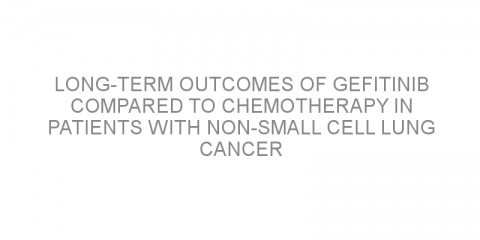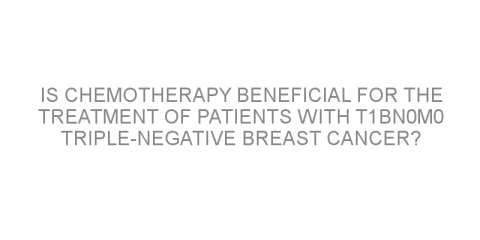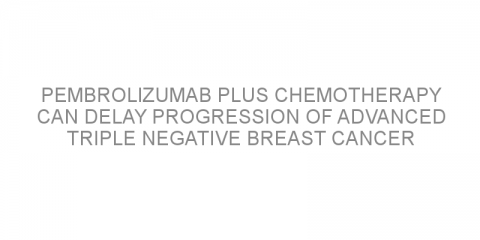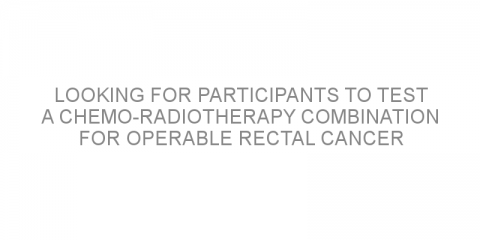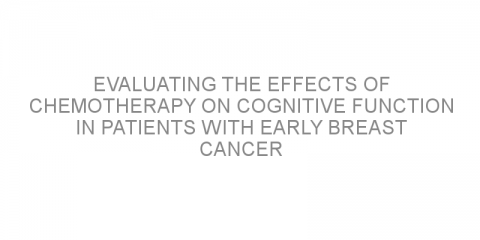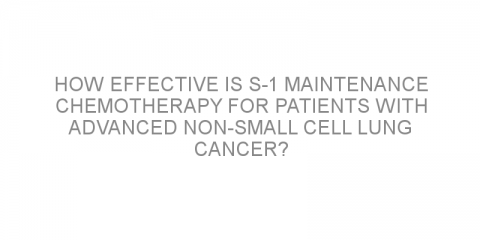In a nutshell This trial looked at the long-term effectiveness of gefitinib (Iressa) compared to vinorelbine (Navelbine) plus cisplatin (Platinol) for stage II-IIIA EGFR-positive non-small cell lung cancer (NSCLC). The authors found that the use of gefitinib improved disease-free survival (DFS) in these...
Read MoreTreatment(s) now being considered-Chemotherapy Posts on Medivizor
Is chemotherapy beneficial for the treatment of patients with T1bN0M0 triple-negative breast cancer?
In a nutshell This study evaluated the benefits of chemotherapy after surgery in patients with T1bN0M0 triple-negative breast cancer (TNBC). The data showed that chemotherapy after surgery resulted in similar outcomes as patients who did not undergo chemotherapy. Some background Triple-negative breast cancer (TNBC) is a subtype of breast...
Read MoreBevacizumab combined with first-line chemotherapy for metastatic colorectal cancer in a real-world setting
In a nutshell This article looked at the effectiveness of bevacizumab (Avastin) with chemotherapy for metastatic colorectal cancer (mCRC) in a real-world setting. The authors found that the addition of bevacizumab to chemotherapy regimens provides survival benefits in patients who cannot undergo curative local treatment. Some background...
Read MoreComparing the GDP and ICE regimens as salvage treatment for relapsed/refractory aggressive lymphoma
In a nutshell This study investigated the effectiveness and safety of GDP (gemcitabine, dexamethasone, and cisplatin) and ICE (ifosfamide, carboplatin, and etoposide) regimens as salvage therapy in patients with relapsed/refractory aggressive lymphoma. The data showed that both the GDP and ICE regimens are suitable options for relapsed/refractory...
Read MorePembrolizumab plus chemotherapy can delay progression of advanced triple negative breast cancer
In a nutshell This study investigated the effectiveness and safety of pembrolizumab (Keytruda) plus chemotherapy in patients with inoperable or metastatic triple-negative breast cancer. The data showed that the combination is effective in improving progression-free survival in these patients. Some background Triple-negative breast cancer (TNBC)...
Read MoreA shorter mFOLFOX/CAPOX treatment is effective and safe for patients with stage 2 colon cancer
In a nutshell This study compared 3 and 6 months of oxaliplatin (Eloxatin)-based chemotherapy in stage 2 colon cancer. Researchers suggested that the 3-month treatment might be a good and safer option for these patients. Some background Colorectal cancer is the third most common cancer diagnosed in both men and women in the US. Chemotherapy after...
Read MoreIrinotecan combined with capecitabine-based chemoradiotherapy before surgery improves the outcomes of patients with rectal cancer
In a nutshell This study investigated the effectiveness of treatment with irinotecan (Camptosar) combined with capecitabine (Xeloda) chemotherapy (ICC) before rectal cancer surgery. Researchers suggested that this combined therapy significantly improved the treatment outcomes in these patients. Some background Rectal cancer is a common...
Read MoreLooking for participants to test a chemo-radiotherapy combination for operable rectal cancer
In a nutshell This trial is examining the effectiveness and safety of short-course radiation therapy and TAS-102 (Lonsurf) plus oxaliplatin (Eloxatin) chemotherapy in rectal cancer. The main outcome to be measured will be the change in treatment response. This study is being conducted in the US. The details Colorectal cancer is one of...
Read MoreEvaluating long-term bowel function after low-anterior surgery for rectal cancer
In a nutshell This study investigated the long-term side effects of low anterior surgery for rectal cancer. Researchers suggested that radiation before surgery is associated with poorer bowel function after surgery. Some background Rectal cancer is a frequent and serious disease. In the US there are 43,340 new cases of rectal cancer every...
Read MoreEvaluating the effects of chemotherapy on cognitive function in patients with early breast cancer
In a nutshell The study evaluated the contribution of chemotherapy on cancer-related cognitive impairment (CRCI) reported by women with early breast cancer. The authors found that chemotherapy added to hormonal therapy caused early and short-term CRCI in such patients, compared to hormonal therapy alone. Some background CRCI refers to problems in...
Read MoreDoes pembrolizumab added to chemotherapy before surgery improve the outcomes of patients with early triple negative breast cancer?
In a nutshell The study assessed whether pembrolizumab (Keytruda) could be used in addition to neoadjuvant chemotherapy (NAC; chemotherapy before surgery) to improve the outcomes of patients with early triple-negative breast cancer (TNBC). The study found that more patients treated with pembrolizumab had a complete response. Some...
Read MoreHow effective is S-1 maintenance chemotherapy for patients with advanced non-small cell lung cancer?
In a nutshell This study examined how effective S-1 (Teysuno) chemotherapy is for patients with advanced non-small cell lung cancer (NSCLC) following initial chemotherapy treatment. The results showed that S-1 improved patients’ survival without NSCLC worsening but increased the number of side effects. Some background Treatment for patients...
Read More
